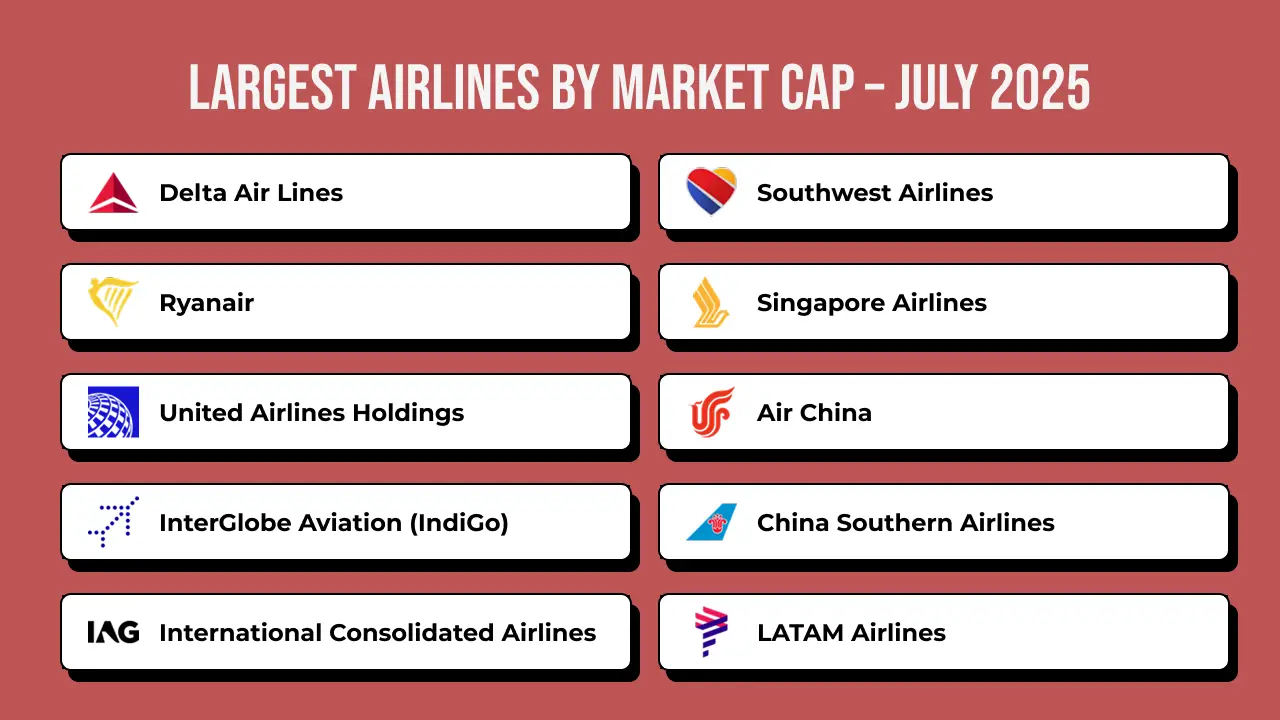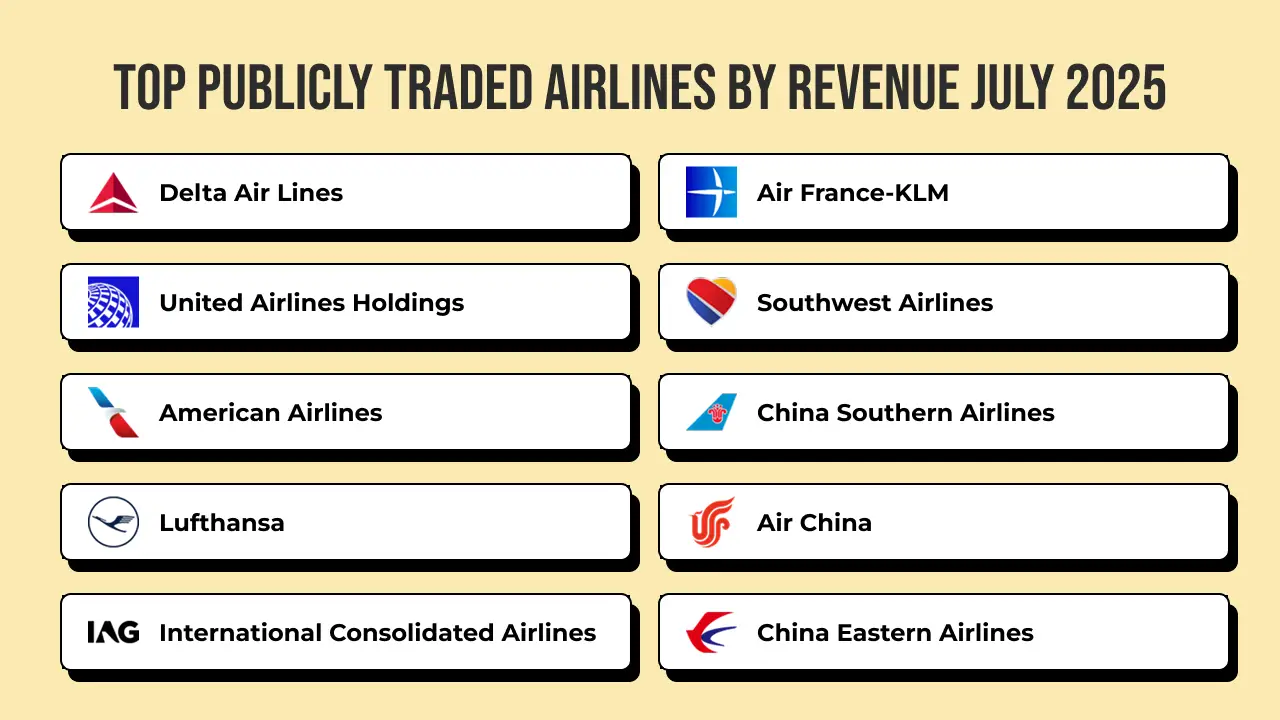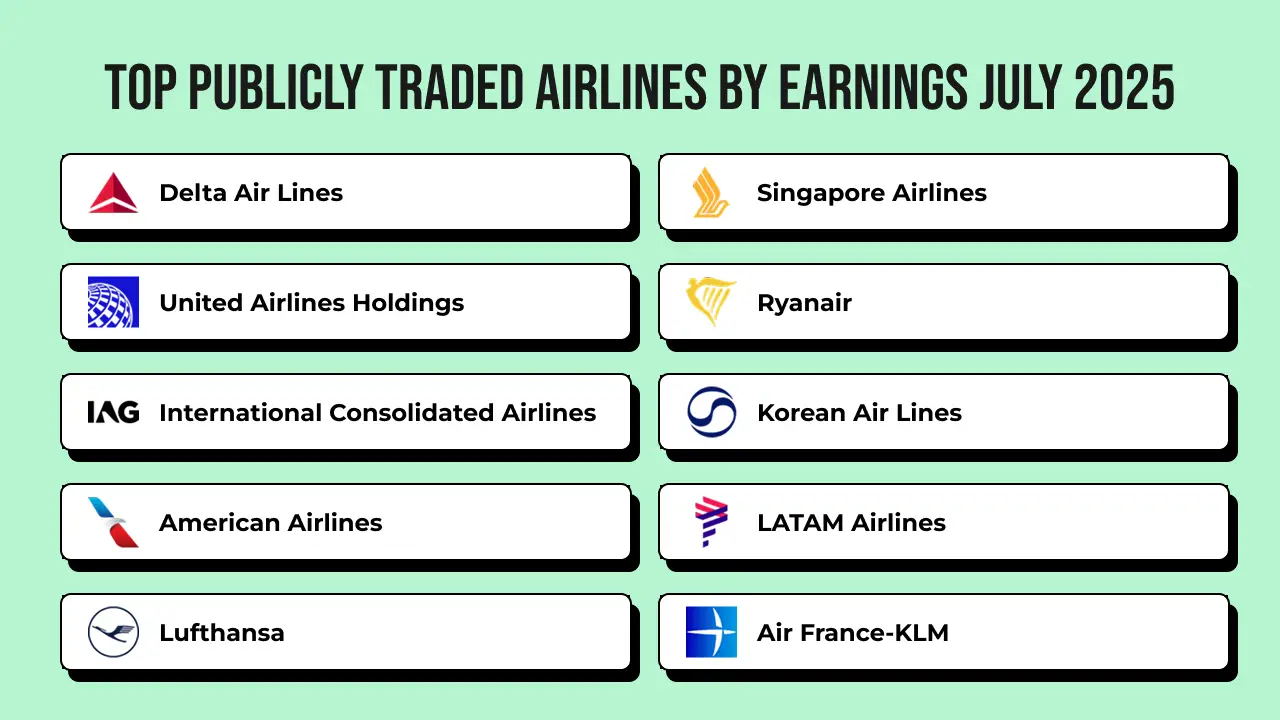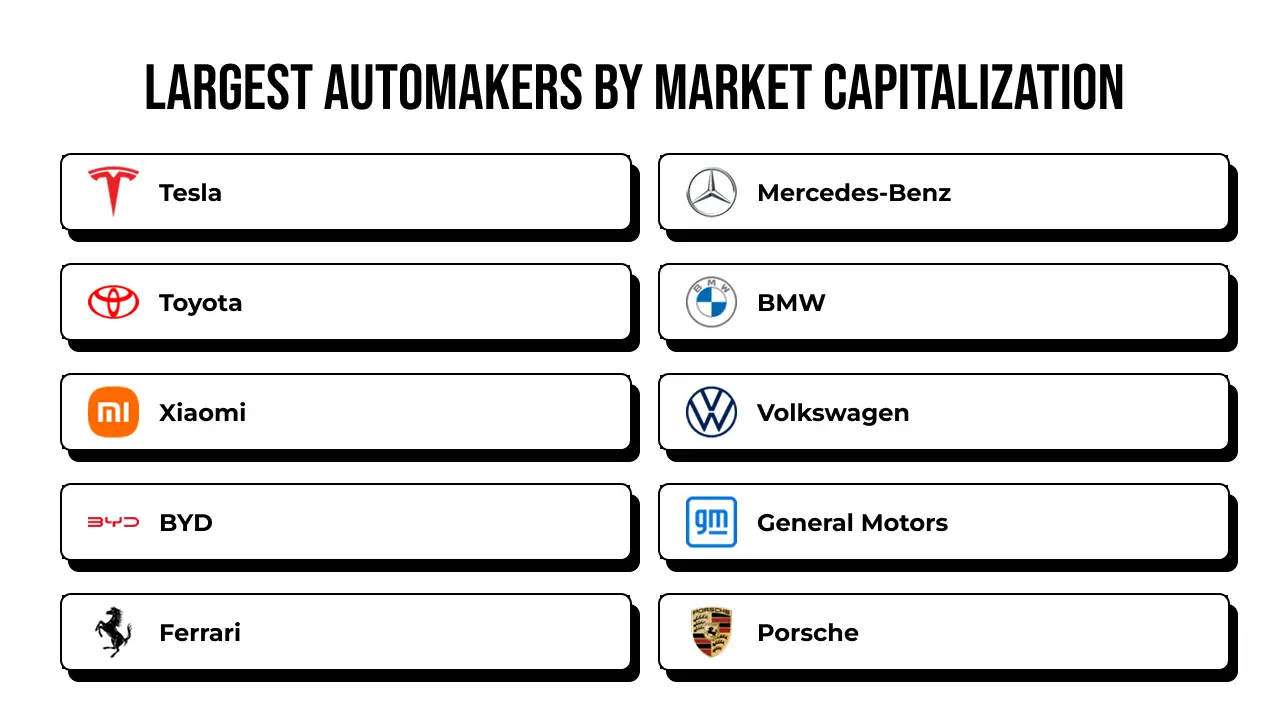The global aviation industry continues to demonstrate remarkable resilience and growth, with airline market capitalizations reaching impressive heights in July 2025. As travel demand rebounds and stabilizes following years of uncertainty, investors have shown renewed confidence in the sector, driving valuations across major carriers worldwide. The current market landscape reveals a diverse mix of traditional legacy carriers, low-cost airlines, and emerging market players competing for dominance in an increasingly interconnected world.
Delta Air Lines maintains its position as the world’s most valuable airline by market capitalization, commanding a substantial $36.55 billion valuation. This American carrier’s strong performance reflects its robust domestic network, premium service offerings, and strategic international partnerships. Close behind is Ireland’s Ryanair, Europe’s largest low-cost carrier, with a market cap of $33.16 billion, demonstrating the continued success of the budget airline model. The top three is rounded out by United Airlines Holdings at $29.27 billion, showcasing the strength of major US carriers in the global marketplace.
Top 10 Airlines by Market Capitalization
| Rank | Company Name | Market Cap | Country |
|---|---|---|---|
| 1 | Delta Air Lines | $36.55 B | USA |
| 2 | Ryanair | $33.16 B | Ireland |
| 3 | United Airlines Holdings | $29.27 B | USA |
| 4 | InterGlobe Aviation (IndiGo) | $26.14 B | India |
| 5 | International Consolidated Airlines | $24.51 B | Spain |
| 6 | Southwest Airlines | $21.33 B | USA |
| 7 | Singapore Airlines | $17.56 B | Singapore |
| 8 | Air China | $16.83 B | China |
| 9 | China Southern Airlines | $13.34 B | China |
| 10 | LATAM Airlines | $12.83 B | Chile |
The geographic distribution of the world’s most valuable airlines reveals interesting trends in global aviation. American carriers dominate the top positions, with three US airlines—Delta, United, and Southwest—securing spots in the top six. However, the presence of IndiGo at fourth place with $26.14 billion highlights the explosive growth of India’s aviation market and the success of low-cost carriers in emerging economies. The Indian carrier’s valuation reflects the country’s rapidly expanding middle class and increasing domestic air travel demand.
Asian airlines demonstrate significant strength in the rankings, with Singapore Airlines ($17.56 billion), Air China ($16.83 billion), and China Southern Airlines ($13.34 billion) all featuring prominently. Singapore Airlines’ premium positioning and hub strategy continue to generate strong investor confidence, while Chinese carriers benefit from the world’s second-largest aviation market. Meanwhile, European representation includes Ryanair’s commanding second-place position and International Consolidated Airlines Group (IAG) at fifth with $24.51 billion, showcasing the consolidation trends in European aviation.
The airline industry’s current market valuations reflect a sector that has successfully navigated recent challenges while positioning itself for future growth. Factors driving these high valuations include improved operational efficiency, strategic route optimization, fleet modernization initiatives, and the gradual recovery of international travel. As airlines continue to adapt to changing consumer preferences, sustainability requirements, and technological innovations, these market capitalizations serve as indicators of investor confidence in the long-term prospects of global aviation. The diversity of carriers in the top rankings—from ultra-low-cost operators to full-service premium airlines—demonstrates that multiple business models can succeed in today’s competitive landscape.











